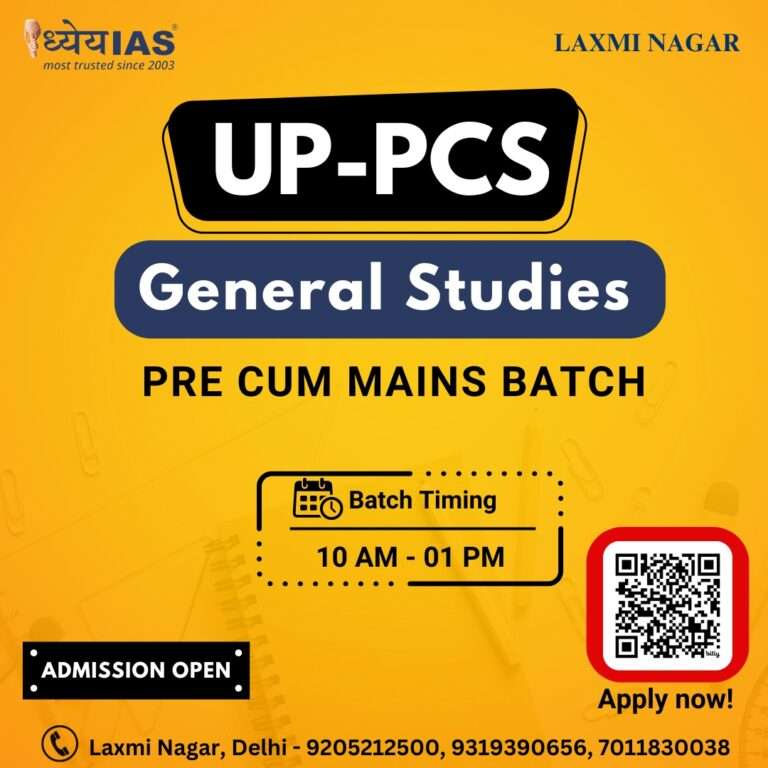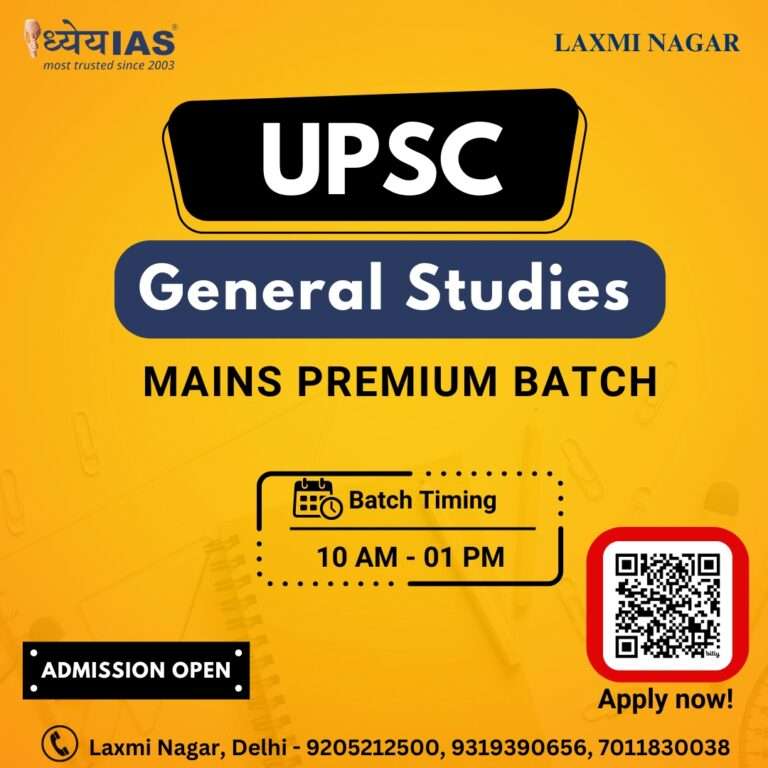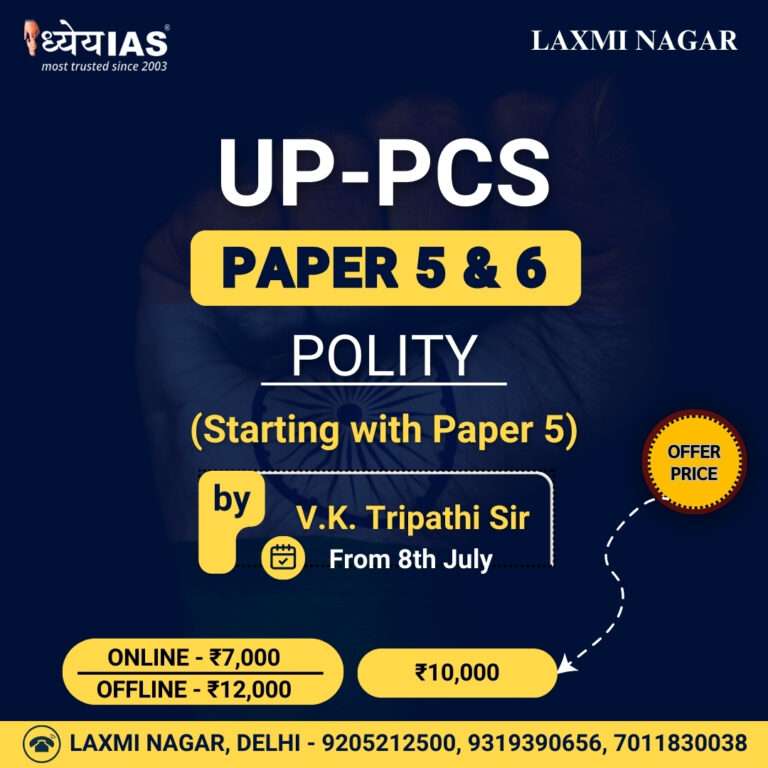Uttar Pradesh PCS (UPPSC)
All State examination preparation
About UPPSC
The UPPSC exam plays a crucial role in managing and executing state-level administration, ensuring law and order, implementation of policies, and overall governance in Uttar Pradesh. Here’s a detailed breakdown of the exam, including its pattern, eligibility, preparation strategy, and more.
Uttar Pradesh Public Service Commission(UPPCS)
1) A Detailed Overview
The Uttar Pradesh Public Service Commission (UPPSC) conducts the Uttar Pradesh Provincial Civil Services (UPPCS) exam to recruit candidates for various administrative positions within the state. It is one of the most sought-after exams in Uttar Pradesh, providing prestigious career opportunities in the state’s bureaucracy. This exam selects candidates for roles such as Sub-Divisional Magistrate (SDM), Deputy Superintendent of Police (DSP), Tehsildar, Block Development Officer (BDO), and many more.
2) Eligibility Criteria forUPPSC Exam
To apply for the BPCS exam, candidates must meet certain eligibility requirements. Certain posts, like the DSP post, have a higher minimum age limit of 22 years.
1. Nationality:
Candidates must be Indian citizens. NRI or foreign nationals are not eligible.
2. Age Limit:
The minimum age is 21 years, and the maximum age is 40 years.
Relaxations in the upper age limit apply to reserved categories (OBC/SC/ST) as per state government rules. For example, candidates from SC/ST backgrounds may get a relaxation of 5 years.
3. Educational Qualification:
Candidates must possess a bachelor’s degree from a recognized university or institution. Certain specialized posts may require additional qualifications, such as a degree in agriculture or law.
4. Physical Fitness:
For roles such as DSP, Assistant Conservator of Forests, and Range Forest Officer, candidates must meet specific physical standards, including height, chest girth, and endurance levels.
3) Exam Pattern of UPPSC
The UPPSC exam consists of three stages:
1. Preliminary Examination (Prelims):
The Prelims is a qualifying exam that serves as the first filter. It has only one objective-type paper.
General Studies Paper: It includes topics like History, Geography, Polity, Economy, Environment, Science, and Current Affairs. The paper is objective in nature, with multiple-choice questions (MCQs).
General Studies Paper II (CSAT): The Civil Services Aptitude Test (CSAT) covers logical reasoning, comprehension, and basic mathematics. This paper is qualifying in nature, meaning candidates must only secure the minimum marks to qualify.
Note: Only marks obtained in General Studies Paper I are considered for shortlisting candidates for the Mains exam.
2. Mains Examination:
The Mains exam is descriptive and consists of four papers:
1. General Studies Papers: Four papers, covering diverse topics such as History, Geography, Polity, Environment, Economy, and Science..
2. Essay: This paper evaluates a candidate’s ability to write structured and coherent essays on topics of national or international importance.
3. Optional Subject: Candidates choose one optional subject from a list provided by UPPSC, such as Public Administration, Geography, Sociology, etc.
4. Hindi and General English: Two papers that test a candidate’s proficiency in Hindi and English.
3. Interview/Personality Test:
After qualifying for the Mains, candidates are invited for an interview. The interview tests the candidate’s personality, general awareness, and suitability for a career in civil services.
4) How to Prepare for BPSC Exams
Here are some preparation tips to help candidates succeed in the State UPPSC exams:
Syllabus for UPPCS
The UPPCS syllabus is vast, covering a wide range of subjects, with a focus on General Studies, Current Affairs, and State-specific topics. The key areas include:
1. History of India and Indian National Movement
Detailed knowledge of Indian history, freedom struggle, and significant movements.
2. Geography of India and the World
Focus on physical geography, resources, and state-specific geography of Uttar Pradesh.
3. Indian Polity and Governance
Understanding of the Indian Constitution, political system, Panchayati Raj, public policy, rights issues, etc.
4. Economic and Social Development
Issues like poverty, inclusion, demographics, economic planning, and sustainable development.
5. Environment and Ecology
Biodiversity, environmental degradation, climate change, and global environmental policies.
6.Science and Technology
Developments in science, technology, and their applications in daily life.
7.Current Affairs
National and international events, as well as issues of state importance.
5) Preparation Strategy for UPPCS
To crack the UPPCS exam, aspirants must adopt a well-rounded preparation strategy:
Understand the Syllabus:
Go through the detailed syllabus for both Prelims and Mains. Identify key areas that need focus and begin with subjects like History, Geography, and Polity.
1. Current Affairs:
Stay updated with current affairs by reading newspapers like The Hindu and Dainik Jagran. Make notes of important events, both national and state-specific.
2. Regular Practice with Mock Tests:
Attempt mock tests to assess your preparation level, manage time effectively, and identify weak areas that need improvement.
3. Indian Polity and Governance
Understanding of the Indian Constitution, political system, Panchayati Raj, public policy, rights issues, etc.
4. Focus on Optional Subject
Choose an optional subject that you are comfortable with and prepare thoroughly, as this plays a significant role in the Mains exam.
5. Revision
Regular revision is crucial to retaining important facts and concepts. Keep concise notes for last-minute revision before the exam.
6) Key Posts Offered Through State UPPSC
The UPPCS exam opens doors to prestigious administrative posts, such as:
1. Sub-Divisional Magistrate (SDM):
The SDM oversees law and order, revenue collection, and the general administration of a sub-division within the state.
2. Deputy Superintendent of Police (DSP):
Responsible for law enforcement, crime prevention, and public safety in a designated area.
3. Tehsildar:
A revenue officer who manages land records, revenue collection, and rural administration at the tehsil level.
4. Block Development Officer (BDO):
The BDO is responsible for the implementation of government schemes and rural development programs in a specific block.
5. Assistant Commissioner (Trade Tax):
This role involves managing trade tax collection, enforcing tax laws, and preventing tax evasion.
6.District Minority Welfare Officer:
This officer is tasked with implementing welfare schemes and ensuring the development of minority communities within the district.
Exam Pattern of Bihar State PCS
Provincial Civil Services (PCS)
How to Prepare for PCS Exams
List of State PCS Courses
Courses
All Study Material



Call Back Requited
Lasted Posts
- Tested Techniques for Maintaining Motivation While Preparing for the UPSC
 One of the hardest exams in India is the Union Public Service Commission’s (UPSC)…
One of the hardest exams in India is the Union Public Service Commission’s (UPSC)… - The role of newspapers in getting ready a robust foundation for the current state of affairs
 The Civil Service Examination (UPSC) is one of the most famous exams in India. And it takes a well-planned and precise strategy
The Civil Service Examination (UPSC) is one of the most famous exams in India. And it takes a well-planned and precise strategy

Have Any Questions?
FAQ’s
The Uttar Pradesh Provincial Civil Services (UPPCS) exam is conducted by the Uttar Pradesh Public Service Commission (UPPSC) to recruit candidates for administrative positions like SDM, DSP, Tehsildar, and other key roles within the state’s bureaucracy.
The UPPCS exam consists of three stages:Â
– Preliminary Examination (objective-based)Â
– Mains Examination (descriptive-based)Â
– Interview/Personality Test
Candidates must be Indian citizens, between 21 and 40 years of age, and possess a bachelor’s degree from a recognized university. Age relaxations apply for SC/ST/OBC categories as per state government rules.
Yes, candidates can choose either Hindi or English as their medium for the Mains and Interview stages of the UPPCS exam.
The UPPCS syllabus covers a wide range of subjects, including History, Geography, Polity, Economy, Environment, Science and Technology, and Current Affairs, with a specific focus on Uttar Pradesh.
Focus on General Studies, particularly subjects like History, Polity, and Geography. Stay updated with current affairs and practice mock tests to improve your speed and accuracy.
Some key posts include Sub-Divisional Magistrate (SDM), Deputy Superintendent of Police (DSP), Tehsildar, Block Development Officer (BDO), and Assistant Commissioner (Trade Tax).
Join Our Community​
Enter your email address to register to our newsletter subscription delivered on regular basis!
